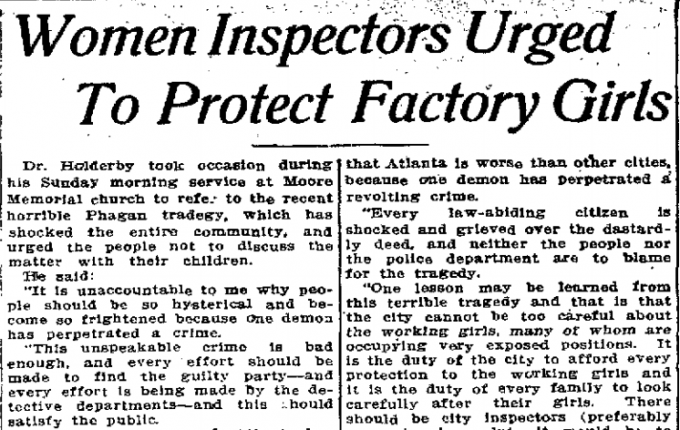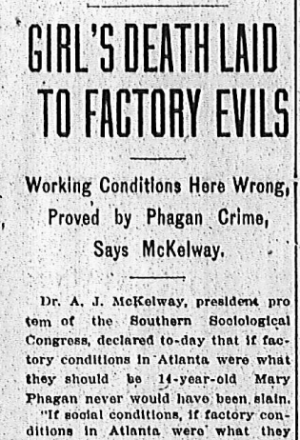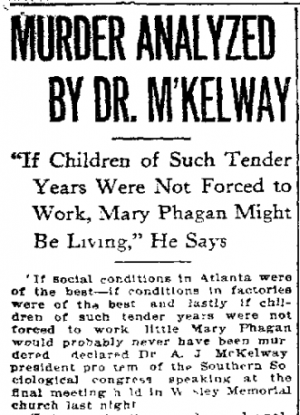 Another in our series of new transcriptions of contemporary articles on the Leo Frank case.
Another in our series of new transcriptions of contemporary articles on the Leo Frank case.
The Atlanta Constitution
Sunday, July 20, 1913
The Episcopalian diocese of Georgia, at its annual convention, appointed a social service commission, which has since met and formulated the following special report on prison and child labor conditions in this state.
“Resolved, That the prison system of the state of Georgia, and the methods of punishment now in use and as commonly administered, are unworthy of an enlightened and progressive state.
“Resolved, That we hereby indorse the splendid efforts of the Prison Reform association of this state, and offer to them our hearty co-operation in securing needed reforms.
“Resolved, That we send copies of these resolutions to as many members of our legislature as possible, and urge them to support those bills now pending which bear on the subject of prison reform in the state of Georgia and which are advocated by the prison association.
“Resolved, That we also urge upon our representatives their support of the child labor bill, advocated and indorsed by the National Child Labor association.”
Copies of these resolutions are being mailed to the legislators, and many of them have already expressed themselves strongly in favor of the measures reerred [sic] to. The three general prison reform measures have already been recommended for passage by the house committee. They are the bill to legalize the suspension of sentence and appoint probation officers; the bill to establish a home for wayward girls; the bill providing for jail inspections and enlarging the powers and responsibilities of the prison commission.
The chairman of the commission which formulated the above report is Rev. G.S. Whitney, of Augusta. The commission is authorized to represent the Episcopal church in the southeastern section of the state in all esforts [sic] for social betterment. It represents some 5,000 communicants or about 7,500 baptized members of the Episcopal church residing in the southeastern half of the state of Georgia.
Colonel G.A. Gordon and Miss Helen Pendleton, of Savannah, are among the prominent members of the commission.
* * *



